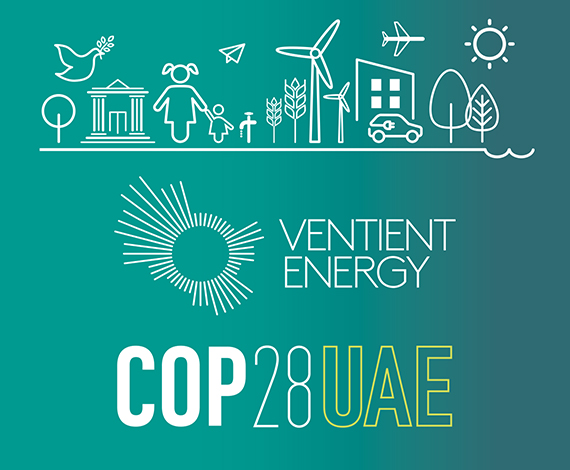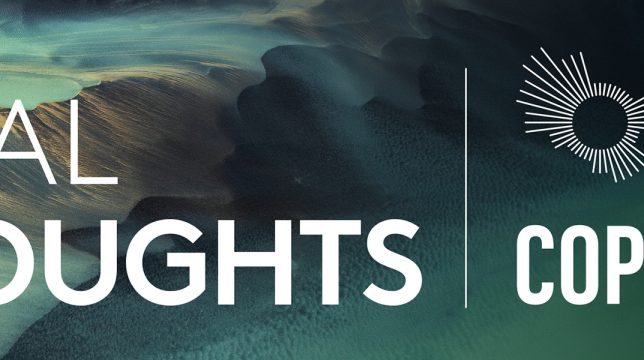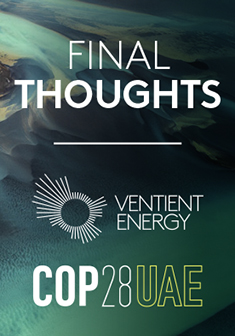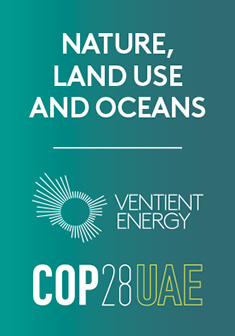“It wasn’t easy, it wasn’t easy at all. We’ve worked around the clock, but this outcome does move us forward.” These were the remarks made by UN Climate Change Executive Secretary, Simon Stiell, during the closing plenary of COP27. After days of intense, stamina-testing negotiations, the 27th annual Conference of the Parties had come to a close, and as the Sharm El-Sheikh sun set on another climate conference, the world (or at least those of us eagerly observing) took a collective exhale.
Was COP27 a success?
It’s difficult to determine exactly what success from a COP looks like, and over the years we have become more accustomed with the small wins as opposed to major breakthroughs. As we examined in our article last year, COP27 was a bit of a mixed bag. The establishment of the Global Loss and Damage Fund was a fundamental step in the right direction, and in many other areas progress was indeed made.
However, it can be argued that COP27 failed to capitalise on the momentum from COP26, foregoing the opportunity to double down on commitments to phase out fossil fuels. Instead, the wording in the final agreements echoed COP26’s phase down language, keeping the proverbial door open for continued fossil fuel consumption across the world. These small details in the wording of agreements have a significant impact on the likelihood of countries developing ambitious and aggressive emission reduction roadmaps.
It needs to be said, however, that the outcomes of COP conferences are intricate and multifaceted, extending far beyond the physical impacts of climate change and emissions reductions. Climate change presents vast social, economic and political complexities that are already impacting communities across the globe and will continue to do so in generations to come.
Western countries often appear to downplay the benefits they’ve derived from fossil fuel exploitation which, among other things, have played a fundamental role in the technological advancement necessary to harness renewable energy sources. It needs to be recognised that developing nations may not have reached the same level of technological maturity required to transition to renewables at scale, as well as build the social and economic infrastructure that more developed nations have been afforded. Requesting that these nations relinquish fossil fuels before they achieve this technological readiness introduces additional socio-economic complexities. An approach such as this may potentially impact millions of people living in poverty who could have otherwise benefited, as we have, from such resources.
This very issue is exactly why we need a Just Transition. We must achieve balance and move to renewable energy rapidly, but in a manner than does not disproportionately impact underprivileged global communities.
Indeed, it is perhaps the biggest challenge of our time to achieve consensus at a global level on how to tackle the issue of climate change. Leaders must lead with empathy and conviction, considering physical, social, economic, and political impacts for everyone, but in particular those communities around the world with less of a voice.
A huge opportunity
COP28 comes at a pivotal and symbolic point in time, 7 years on from the signing of the Paris Agreement, and 7 years to go until the looming 2030 deadline – by which point we still need to cut global emissions by almost half to stay on track for a below 2°C warming. COP conferences over the years have been fantastic forums for conversations and awareness raising, but have so far failed to deliver the tangible actions required to really enact change. Time unfortunately is now running out, and the window we have to turn the tide of climate change is closing.
Hosted in the United Arab Emirates (UAE), this conference brings with it a justified degree of controversy with many arguing a blatant conflict of interest. It is, however, important that the climate issue is tackled head on and in regions of the world that have historically been sidelined from the conversation. Indeed, the UAE hosting the conference presents an opportunity. Being strategically positioned between East and West, and as a dominant player in the fossil fuel economy – if an agreement can be made here, it could signify a watershed moment for global climate diplomacy.
COP28 schedule
The event will open with two days of the World Climate Action Summit, where heads of states, government officials, representatives from business, indigenous and frontline communities, youth, and science will convene to discuss plans to scale climate action. During these first few days we can expect to see a series of announcements, building momentum going into the following days.
Each of the next 7 days will be structured around one of the COP28 themes, with talks, exhibitions and discussions shining a spotlight on a specific area. These themes reflect sectors and topics raised by stakeholders during consultations, including new action areas like health, trade, relief, recovery, and peace, incorporating the four cross-cutting themes of Technology & Innovation, Inclusion, Frontline Communities and Finance.
COP28 themes include:
- Health / Relief, Recovery, and Peace
- Finance / Trade / Gender Equality / Accountability
- Energy and Industry / Just Transition / Indigenous Peoples
- Multilevel Action, Urbanization and Built Environment / Transport
- Youth, Children, Education and Skills
- Nature, Land Use, and Oceans
- Food, Agriculture and Water

The final few days of the conference will be an action-packed flurry of negotiations, where delegates from across the globe will come together and agree on the final text to be included in the COP28 concluding statements. A culmination of the two weeks prior, this is where the success of the conference will be determined. If history is anything to go by, it will be an intense and complicated few days for those involved.
Often running into the early hours of the final day, we know that emotions will be high amongst the climate delegates in attendance, as they’re fully aware of the significance of any decisions made. If climate action were a game of chess, these final hours represent the final few moves. Every decision counts, and each strategic move must be executed with precision and conviction as we approach the endgame in our preventative efforts to combat climate change.
The time is now
As we look forward to the conference, we must do so with hope and positivity, supporting those involved, but also holding to account parties who fail to deliver on their promises. In a year when we’ve experienced the hottest day and month globally ever recorded, seen unprecedented wildfires across Europe and North America, extreme floods and tropical storms across South America and Asia, catastrophic droughts in East Africa, and accelerated ice melting in both poles, it feels like the right time for decisive action.
The controversy surrounding COP28 cannot be ignored, and it will undoubtedly have its challenges in finding the balanced resolutions that this issue requires. Ultimately, we hope that in the dying embers of this year’s conference, the UN Climate Change Executive Secretary can this time deliver words of triumph and success that don’t simply ‘move’ us forward, but instead propel us forward with vigour towards transformative action. We will be watching closely, and so should you.
Ed Flanders
Climate Impact Lead


More articles


COP28 - What happened and was it a success?
Last week we saw COP28 come to a close, and, as President Sultan Ahmed Al Jaber dropped the final hammer of the conference, it’s fair to say there were some mixed emotions regarding the outcome. Over the last 8 weeks, we have been following…


Nature, Land Use & Oceans
We are facing an ecological “polycrisis” The 2023 Global Risk Report[i] published by the World Economic Forum warns that the world is hurtling towards an era of “polycrises”, meaning multiple interconnected crises happening at the same…


